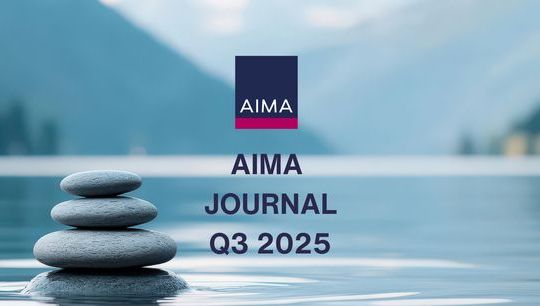HMRC to legislate mandatory UK transfer pricing documentation requirements
By Darren Andrews; Evan Tuck, Ernst & Young LLP
Published: 20 March 2023
Introduction
In March 2021, His Majesty’s Revenue and Customs (HMRC) embarked upon a process to transform the UK transfer pricing documentation requirements. After nearly two years of consultation, the final proposals are due to be enacted into law during Q1 2023. The new requirements will create a mandatory transfer pricing documentation obligation for the largest UK businesses.
Why did HMRC seek to update the UK transfer pricing documentation requirements?
In 2015, the OECD published Action Plan 13 on Transfer Pricing Documentation and Country-by-Country Reporting (Action Plan 13). In response to this report, the UK implemented the Country-by-Country Reporting (CbCR) minimum standard but did not introduce specific requirements regarding a master file or local file, as HMRC had considered the existing broad requirement to keep and retain sufficient records to demonstrate that the tax return is complete and accurate to be adequate.
However, since 2016, transfer pricing has grown to represent a significant area of tax risk and it is seen by HMRC as a major source of tax uncertainty for UK businesses. This is evidenced by the fact that HMRC brought in over £6 billion of additional tax from transfer pricing compliance during the five-year period 2015/2016 to 2019/2020,1 and this number has only continued to grow in the subsequent years, with additional tax raised of over £2.1 billion in 2020/212 alone. In light of this, it was not surprising that HMRC has now set out to clarify the documentation requirements and prescribe a standardised format for the largest businesses.
What are the new UK transfer pricing documentation requirements?
HMRC had originally cast the consultation net wide, with a number of extensive measures proposed, including the introduction of an international dealing schedule and an evidence log. However, after much consultation, HMRC have settled on a more balanced approach, opting to largely align the new requirements with the globally recognised standards prescribed by the OECD Transfer Pricing Guidelines for Multinational Enterprises and Tax Administrations (OECD Guidelines) and Action Plan 13 by adopting a master file3 and a local file4 requirement.
The key details of the new requirements (pending legislative enactment) are summarised below:
- The mandatory obligation to prepare a master file and local file in accordance with the requirements set forth in Annex I and Annex II to Chapter V of the 2022 OECD Guidelines for accounting years starting on or after 1 April 2023 (for businesses with a calendar year-end, the first year of application will be the year ending 31 December 2024).
- The new requirements are only applicable to UK businesses that are part of a multinational enterprise group with total consolidated revenue over €750 million (this is aligned to the CbCR threshold). For businesses that do not meet this threshold, the master file and local file format will not be a mandatory requirement; however, alignment with these standards will be encouraged and considered to represent best practice.
- The master file and local file will not be required to be submitted to HMRC with the tax return or require any form of time stamp. However, they must be maintained and made available to HMRC within 30 days upon request. Failure to comply will result in the presumption of carelessness if an inaccuracy is found in the tax return.
- For corporate taxpayers, information on UK-to-UK transactions is not required to be documented in the local file unless a party has either elected for the Patent Box regime5 or is carrying on a ring-fenced trade in the oil and gas industry.6
HMRC is also expected to issue a technical support paper during Q1 or Q2 2023. This paper is expected to provide HMRC’s view on best practice and answer the practical questions that are on businesses’ minds, such as how to determine whether a controlled transaction should be reported in the local file and how a UK group should approach consolidation for their local file(s) (e.g., the optionality for a UK country file v an entity file).
Summary Audit Trail
The Summary Audit Trail (SAT) is the most contentious proposal that remains in the new UK documentation package because it is an original concept that goes beyond the requirements in the OECD Guidelines / Action Plan 13 and will be unique to the UK.
HMRC had intended for the SAT to be applicable for accounting years starting on or after 1 April 2023, however, in December 2022, it made the decision to separate the introduction of the SAT from the local file and master file requirements and delay its introduction. The delay will allow HMRC further time to refine its proposal and undertake full public consultation. While delayed, the legislation that is to be enacted during Q1 2023 is drafted in a manner that will allow for HMRC to implement the SAT at a later date via published notice thereby eliminating the need to pass further legislation.
Based on HMRC’s comments to date, it is our expectation that the SAT will be a short questionnaire that will be appended to a UK local file and contain a series of yes / no and short answer questions. Its intended purpose will be to show the behaviours that the business observed when preparing the local file by requiring it to disclose the steps taken in preparing the local file. In particular, the SAT may request information regarding when a functional analysis was prepared, when fact-finding interviews were performed, who was interviewed, and whether the analysis has been reviewed annually.
The SAT will be provided as part of any formal documentation request and will provide HMRC with increased information during an enquiry to enable targeted requests linked to specific steps that were undertaken during the preparation of the local file.
UK businesses should look out for the public consultation, which is expected later in 2023 and will contain the full list of proposed requirements. UK businesses will have the opportunity to submit feedback on this proposal as part of the consultation process and should raise any concerns or feedback that they have with their advisors or trade association, such as AIMA.
What actions should UK businesses be taking to prepare for the new requirements?
For some UK businesses, their existing documentation may require little updating to achieve compliance, however, for others there may be a large amount of planning required. There is still time for businesses to start planning and to consider where to best focus their time and resources. Based on our experience, we have collated some common considerations below. We note that there is nothing within the new requirements that is specific to asset managers (traditional or alternative) that would suggest that they are required to approach this any differently from other UK businesses.
- Has a gap analysis of the existing transfer pricing documentation been performed to identify any content gaps with the OECD master file and local file requirements? The commonly observed gaps for local files have been the existence of intercompany agreements and the ability to reconcile transactional data to the financial statements.
- Does the business have access to the right financial information to prepare a local file or know how it will go about obtaining the transactional data in order to be able to prepare accurate documentation? Further, has the report tested the transfer pricing policy outcome (rather than the transfer pricing policy)?
- When was the functional analysis prepared? Were interviews conducted, and who in the business was involved? HMRC will be interested to see that local fact finding / validation occurs on a regular basis and that the appropriate people within the business are consulted in the preparation of the reports.
- Has benchmarking been performed to support the controlled transaction, and if so, when was this performed or last updated? In supporting controlled transactions, HMRC will be interested to see that the data is comparable, up to date, and has been selected in accordance with the OECD Guidelines.
- Where a taxpayer is not headquartered in the UK, do they have access to the group’s master file, and the relevant information required to prepare a local file?
- Are there any other evidentiary requirements that are critical to the characterisation of entities and their role in the covered transactions (e.g., are key decisions made outside of the UK? Is there evidence of decision making, local approvals, etc.)?
If there are any questions from this article, please get in touch with AIMA, your advisor, or us at [email protected], as we would be happy to discuss.
1 HMRC Transfer Pricing Documentation Consultation, publication date: 23 March 2021.
2 HMRC Transfer Pricing and Diverted Profits Tax statistics, 2020 to 2021, publication date: 28 April 2022.
3 A high-level report to provide context to a group’s transfer pricing practices.
4 A more detailed report relating to specific intragroup transactions to evidence compliance with the arm’s length principle.
5 Election under s357A of the Corporation Tax Act 2010
6 Defined under s277 of the Corporation Tax Act 2010 (oil activities).








